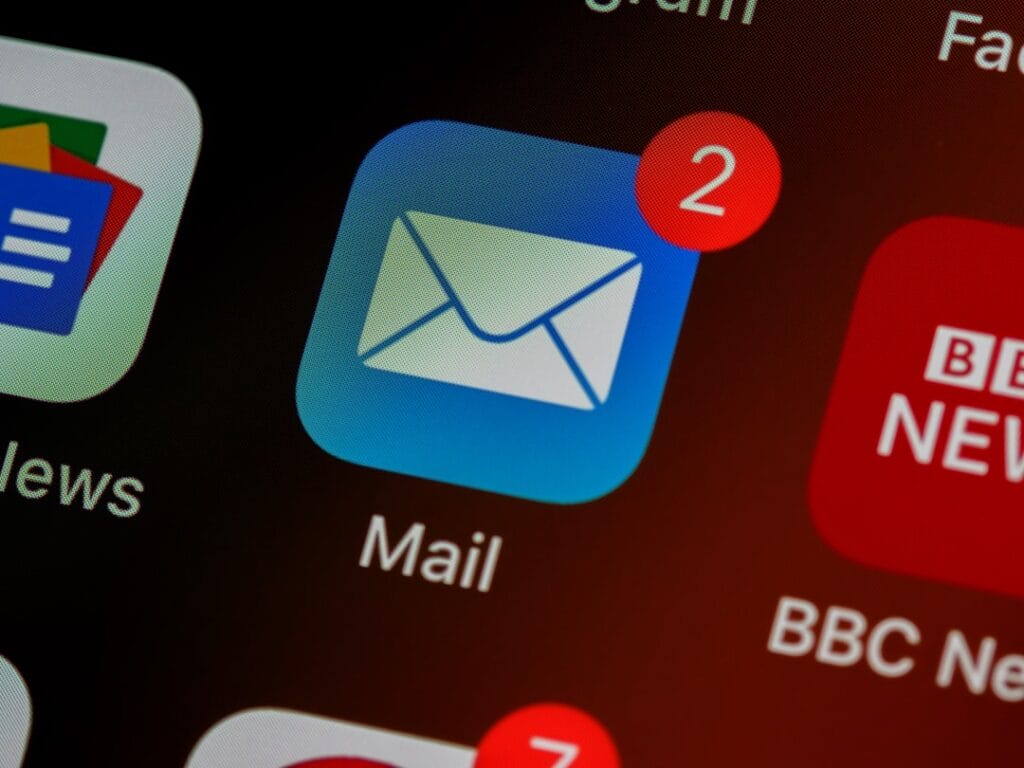Lead generation is an essential process in B2B (Business-to-Business) marketing. A lead is defined as an individual or company that has expressed interest in an organization's products or services. The Lead Generation aims to attract the attention of potential prospects and encourage them to provide their contact information, such as their email address or phone number, for further follow-up.
This is fundamental to feeding the business pipeline of a company and facilitating the conversion of leads to customers. The generation of leads can be carried out via various channels, including social networks, marketing by e-mail, optimization for search engines (SEO), online advertising, professional events, and other methods. In the B2B context, the generation of leads plays a crucial role in the sales process.
It allows businesses to build a base of qualified prospects, which is essential for maintaining a steady flow of business opportunities. Identifying and qualifying potential leads are key steps in this process, allowing sales teams to focus their efforts on the most promising leads.
Summary
- The generation of leads is to attract and convert prospects interested in the products or services of a company.
- Effective strategies for generating B2B leads include content marketing, SEO, email marketing, and social media.
- To generate qualified leads, it is essential to target the right prospects, personalize messages and maintain constant follow-up.
- Lead generation is crucial in B2B marketing because it helps identify and convert prospects into potential customers.
- The essential tools to generate leads effectively include CRM, marketing automation tools, lead capture forms and data .
Effective Strategies for Generating B2B Leads
There are several effective strategies for generating B2 leads. First of all, content marketing is a must-have strategy. By producing relevant, quality content, a business can attract the attention of potential prospects and entice them to provide their contact details in exchange for access to that content. Email marketing is also an effective strategy for generating B2 leads. By sending targeted, personalized emails to qualified prospects, a business can pique their interest and encourage them to provide their contact details.
Additionally, SEO is an essential strategy for generating B2 leads. By optimizing its website for search engines, a business can attract qualified traffic and convert these visitors into leads. Additionally, social media marketing is an effective strategy for generating B2 leads. By posting engaging content and interacting with its community, a business can grab the attention of its potential prospects and entice them to provide their contact details. Finally, attending professional events such as trade shows or conferences is an effective strategy for generating B2 leads. By meeting potential prospects in person, a company can build strong relationships and encourage them to provide their contact details.
In short, there are several effective strategies for generating B2B leads, and it is essential for a business to adopt a multi-channel approach to maximize its chances of success.
How to Generate Qualified Leads

Generating qualified leads is essential to maximize the efficiency of your generation efforts of Leads B2pour this, it is important to clearly define your target audience and adapt your strategies accordingly. By understanding the needs and challenges of its target audience, a company can produce relevant and targeted content that will draw the attention of qualified prospects. marketing automation tools to qualify your leads.
By following the online behavior of its potential prospects, a company can determine their level of interest and their maturity in relation to its offer, which will allow it to qualify them accordingly. In addition, collaboration between marketing and sales teams is essential to generate qualified leads. By aligning their objectives and their processes, these two teams can work together to identify, qualify and convert leads into customers .
In addition, it is important to establish a clear process for the qualification of leads. By defining specific criteria such as the budget , the authority, the need and the deadline (Bant), a company can ensure that only the most qualified leads are transmitted to its sales team. In short, generating qualified leads requires a strategic approach and close collaboration between marketing and sales teams.
The Importance of Generating Leads in B2B Marketing
| Metrics | Values |
|---|---|
| Lead-to-customer conversion rate | 25% |
| Number of leads generated per month | 150 |
| Acquisition cost per lead | 50€ |
| Lead revenue growth rate | 15% |
The generation of Leads is of capital importance in the field of B2EN EXPECTE marketing, it allows companies to identify and qualify potential prospects which are interested in their products or services. This then allows them to feed their sales pipeline with qualified leads on which they can rely to generate commercial opportunities. In addition, the generation of leads allows companies to establish solid relationships with their target audience by providing them with relevant content and meeting their specific needs.
Finally, lead generation helps increase a company's awareness and visibility by allowing it to reach a wider audience and position itself as an expert in its field. Additionally, lead generation plays a crucial role in optimizing the return on investment (ROI) of a company's marketing efforts. By identifying and qualifying potential leads, a business can focus its resources on the most promising opportunities and maximize its chances of conversion.
Additionally, lead generation allows businesses to gain valuable data about their target audience, such as their preferences, online behaviors, and specific needs, which will allow them to refine their marketing strategy and improve their conversion rate. In short, lead generation is of paramount importance in the field of B2B marketing, because it allows companies to identify, qualify and convert potential prospects into customers.
The Essential Tools to Generate Leads Effectively
To generate leads effectively, it is essential to use the right tools. First of all, a customer relationship management (CRM) system is an essential tool for tracking and managing leads throughout the sales process. By centralizing all information relating to its potential prospects, a company can better understand their needs and concerns, which will allow it to adapt its marketing strategy accordingly.
Additionally, marketing automation software is a valuable tool for generating leads effectively. By automating certain tasks such as sending targeted emails or posting content to social media, a business can save time and maximize the effectiveness of its marketing efforts. Additionally, a web analytics tool is essential for understanding the online behavior of potential prospects.
By following their journey on its website, a company can identify the pages that arouse the most interest and adapt its content accordingly to attract more qualified leads. In addition, a tool for managing campaigns is essential to optimize its online lead generation efforts. By following the performance of its advertisements and by adjusting its campaigns according to the results obtained, a company can maximize its return on investment (king) and generate more qualified leads.
In short, using the right tools is essential to generate leads effectively and maximize your chances of conversion.
Best Practices for Generating B2B Leads

To generate B2B leads successfully, it is important to follow certain best practices. First of all, it is essential to clearly define your target audience and personas in order to adapt your marketing strategy accordingly. By understanding the specific needs of its target audience, a business can produce relevant content that will attract the attention of qualified prospects.
Additionally, it is important to adopt a multi-channel approach to maximize your chances of success. By using multiple channels such as email marketing, social media and SEO, a business can reach a wider audience and increase its chances of generating qualified leads. Additionally, it is essential to establish a clear process for lead qualification to ensure that only the most promising prospects are passed to the sales team.
By defining specific criteria such as budget, authority, need and time (BANT), a company can ensure that only the most qualified leads are passed to its sales team. In addition, it is important to establish regular follow-up with your leads in order to maintain their interest throughout the sales process. By staying in touch with potential prospects and providing them with relevant content throughout the buying process, a business can maximize its chances of conversion.
In short, following these best practices is essential to successfully generating B2B leads.
Measure and Monitor the Effectiveness of your Lead Generation Strategies
B2B lead generation strategies , it is essential to measure and follow their performance regularly. First of all, it is important to establish clear objectives for its lead generation efforts in order to be able to assess their effectiveness in relation to these objectives. By defining key performance indicators (KPI) such as the number of leads generated, the conversion rate or the return on investment (king), a company can measure the real impact of its strategies and provide the necessary adjustments.
In addition, it is essential to use analysis tools to follow the journey of potential prospects throughout the purchasing process. By understanding how its leads interact with its content and what their specific concerns are, a business can adjust its marketing strategy accordingly to maximize its chances of conversion. Finally, it is important to establish regular follow-up with potential prospects in order to maintain their interest throughout the purchasing process.
By staying in touch with potential prospects and providing them with relevant content throughout the buying process, a business can maximize its chances of conversion. In short, measuring and monitoring the effectiveness of your lead generation strategies is essential to maximize your return on investment (ROI) and generate more qualified leads.
If you are looking to generate leads for your business, you may be interested in the article on sales prospecting software that is guaranteed to be effective. This article from Magileads explains how these tools can help you find new potential customers and increase your sales. By using marketing automation software, you could also improve your lead generation process. To learn more about these tools and how to integrate them into your strategy, check out the article on migrating to a new marketing automation tool. And don't forget to read the terms of service to make sure you follow the rules when generating leads. source
FAQs
What is lead generation?
Lead generation is the process of creating and capturing information about potential customers who are interested in a company's products or services.
What are the different ways to generate leads?
There are several ways to generate leads, such as email marketing, social media, SEO, online advertising, events and trade shows, content marketing, etc.
Why is lead generation important for a business?
Lead generation is important because it allows a business to identify and target potential customers, convert them into actual customers, and grow its business.
What are the benefits of lead generation for a business?
The benefits of lead generation for a business include increasing sales, acquiring new customers, improving brand awareness, and growing the business.
How to measure the effectiveness of lead generation?
Lead generation effectiveness can be measured using different metrics like conversion rate, cost per lead, ROI, number of qualified leads, etc.





